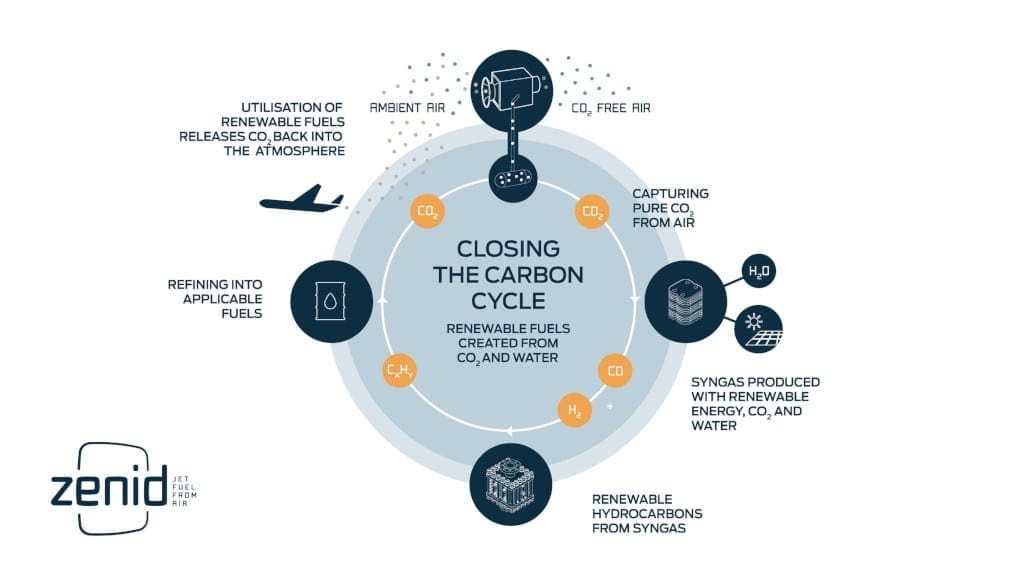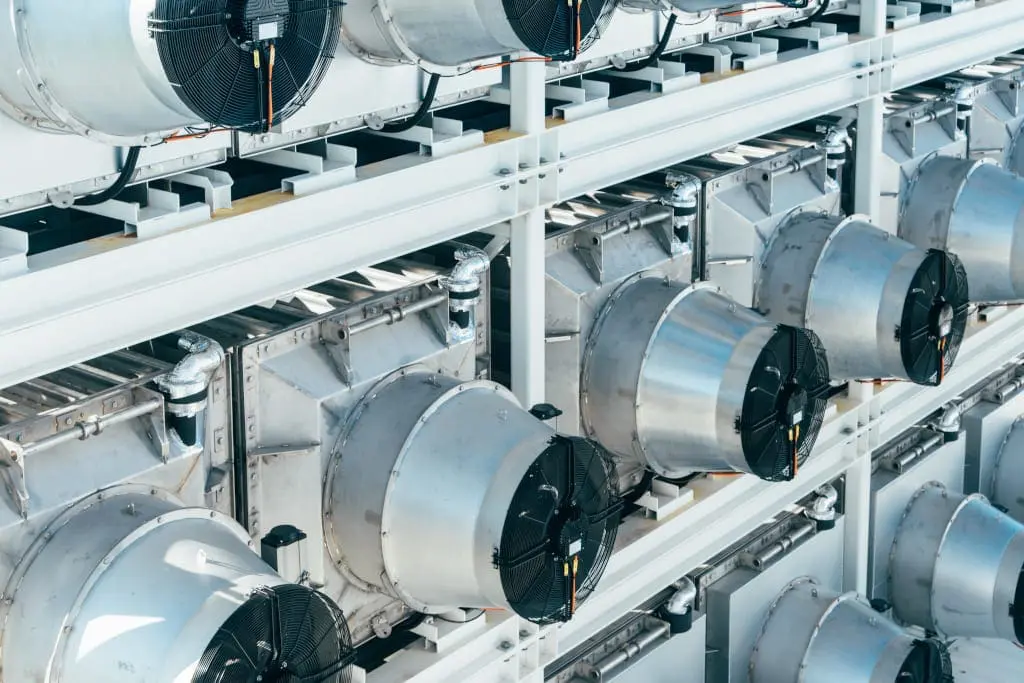A high-level conference on Synthetic SAF hosted by the Dutch Minister for Infrastructure and Water Management Cora van Nieuwenhuizen set a new milestone in the development of Zenid on 8 February.
A consortium consisting of the Rotterdam The Hague Airport (part of Royal Schiphol Group), Rotterdam The Hague Innovation Airport, global leader for SAF SkyNRG and Swiss direct air capture pioneers Climeworks agreed to further investigate the construction of a demonstration plant producing fully circular SAF with 100% CO2 derived from the air.
Christoph Gebald, Climeworks, said, “The launch of Zenid shows the commitment of the industry towards fully circular fuels from air and their role to substantially reduce aviation’s CO2 emissions.”
Ron Louwerse, Rotterdam the Hague Airport, said, “Rotterdam the Hague Airport is very proud to be one of the Kick-Starters of this groundbreaking project. It fits exceptionally well within our strategy to facilitate and accelerate sustainability and innovation in aviation, to be at the cradle of sustainable aviation fuel made of CO2 from air. We support this project with our know how and local networks.’

The demonstration plant will be powered by regionally sourced renewable energy and combines several innovative technologies: a direct air capture plant provides CO2 to a highly efficient co-electrolysis unit, that turns the CO2 and added water into syngas. The syngas is transformed into liquid hydrocarbons by a modular Fischer-Tropsch reactor and then refined into sustainable aviation fuel.
The Zenid consortium signed an MoU with global energy company Uniper to support the engineering and operation of the demonstration plant. For the future availability of fully circular SAF from air, it is crucial to kick-start the scale-up today. The goal of Zenid is to enable a net zero aviation industry in the long-term.
Aviation industry CO2 Emissions
The aviation industry is responsible for 3% of global manmade CO2 emissions and has the challenging objective to reduce these emissions in the next decade significantly. Unlike road transport, aviation cannot switch to electric or hydrogen propulsion yet and therefore depends on sustainable aviation fuels (SAF).
SAF purely made from air via direct air capture technology and renewable electricity offers a carbon-neutral solution suitable to meet the industry’s high demands for renewable fuels in the future.

“Sustainable aviation fuel produced synthetically from CO2 is one of the promising technological pathway necessary to transition towards a sustainable aviation industry, that’s why SkyNRG is proud to support the Zenid project,” said Maarten van Dijk of SkyNRG.
History of Zenid
In 2019, Royal Schiphol Group financed a study to investigate the feasibility of a demonstration plant able to produce SAF from air, water and renewable electricity.
The European consortium conducting the study was led by the German service provider EDL and further consisted of Climeworks, Sunfire, Ineratec, SkyNRG and Urban Crossovers. Zenid is now taking a next step with the support of these technology partners.
Mian image: Climeworks founders Jan Wurzbacher & Christoph Gebald



